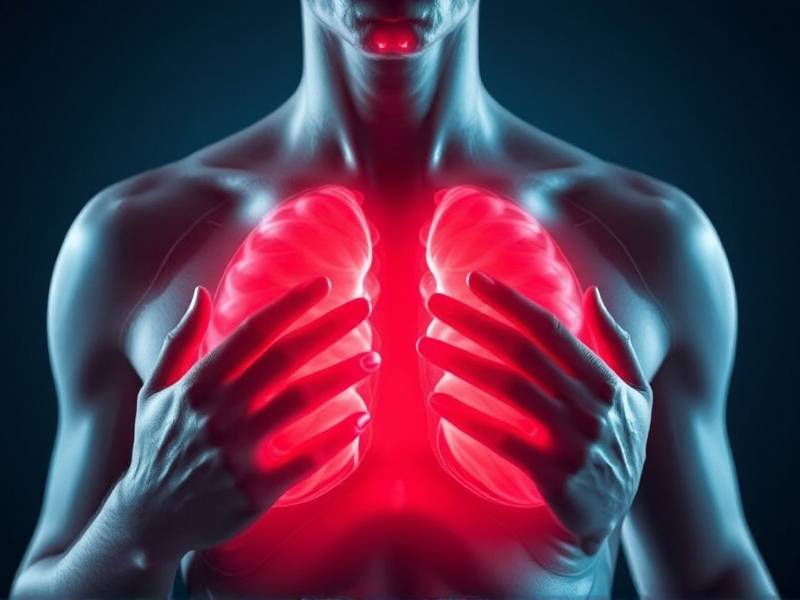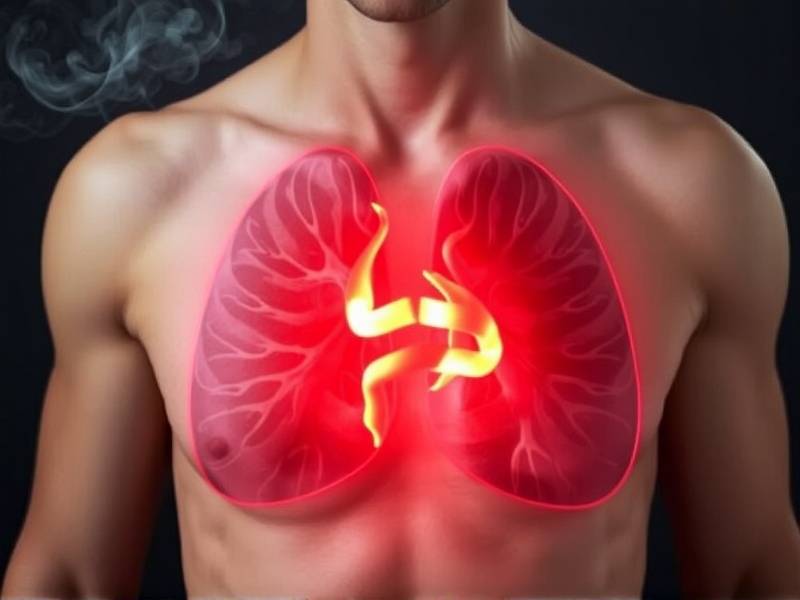Why Does My Chest Feel Tight After I Quit Smoking?
Understanding the Chest Tightness After Quitting Smoking
Introduction: Quitting smoking is a significant step towards improving your health, but it can also come with unexpected challenges. Many ex-smokers report experiencing chest tightness after they quit. This article aims to explore the reasons behind this sensation and provide insights into managing it effectively.
What is Chest Tightness?

Chest tightness refers to a sensation of pressure or pain in the chest area. It can be mild or severe and may be accompanied by difficulty breathing, anxiety, or a feeling of tightness in the throat.
Possible Causes of Chest Tightness After Quitting Smoking
-
Nicotine Withdrawal: Nicotine, a highly addictive substance found in cigarettes, affects the respiratory system. When you quit smoking, your body goes through withdrawal symptoms, including chest tightness. This is because nicotine causes bronchoconstriction (narrowing of the airways) and withdrawal from it leads to relaxation of these airways.

-
Inflammation and Irritation: Smoking causes inflammation and irritation in the lungs and airways. As you stop smoking, your body starts healing from this damage, which can lead to temporary chest tightness as your lungs try to repair themselves.
-
Increased Oxygen Intake: When you quit smoking, you start breathing cleaner air with higher oxygen levels. While this is beneficial for your health, it may also cause some initial discomfort as your body adjusts to the increased oxygen flow.
-
Emotional Factors: Quitting smoking can be an emotionally challenging experience for many people. Stress, anxiety, or even depression can contribute to chest tightness as these emotions affect breathing patterns.
Managing Chest Tightness
-
Stay Hydrated: Drinking plenty of water helps keep your respiratory system hydrated and reduces inflammation.
-
Deep Breathing Exercises: Practice deep breathing exercises such as diaphragmatic breathing to relax your muscles and improve lung function.
-
Avoid Triggers: Identify any potential triggers that may exacerbate chest tightness (e.g., allergens or irritants) and try to avoid them.
-
Stay Active: Regular physical activity improves lung capacity and reduces stress levels.
-
Seek Professional Help: If chest tightness persists or worsens despite these measures, consult a healthcare professional for guidance.
Conclusion: Chest tightness after quitting smoking is a common symptom that usually resolves over time as your body adjusts to life without nicotine. By understanding its causes and implementing effective management strategies, you can overcome this challenge on your journey towards a healthier lifestyle.
